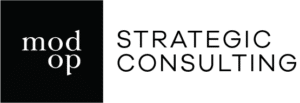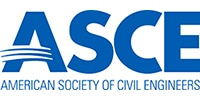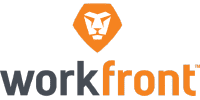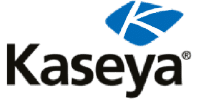Organizations that tap into the potential of their youngest, digital-native employees will see gains in job satisfaction as well as the bottom line. We review some easy, proven ways to make Generation Z workers more involved and valued, while improving employee retention and ROI.
“Diversity in the workplace really matters to me,” said a former client, a well-respected, middle-aged, female CEO who had just taken on a new role. Of course, I agreed. Not only is promoting people of different genders, races and sexuality the right thing to do, I said, it can also deliver financial returns. “Yeah, that’s already proven,” she responded. “But I don’t mean that. I mean generations – I think it’s ridiculous that we make young people pay their dues to make decisions. If you’re smarter and have better ideas and can do the job, you should be promoted regardless of your age.”
As a Generation X adult – someone born between 1965 and 1980, according to Pew Research – I learned early in my career that I had to work my way up before I got to make the decisions. The key to job growth, I was taught, would be to make more senior individuals look good and be patient until it was my turn. So, hearing this viewpoint was eye-opening for me.
Generation Z is as different from its preceding generation, the Millennials (or Gen Y, born 1981-96), as mine was from the Baby Boomers (born 1946-64). Take feedback, for example. According to a survey in Inc. magazine, sixty-six percent of Gen Z respondents said they need feedback from their supervisor at least every few weeks in order to stay at their job. Less than half of Millennials said they require the same level of feedback. Also, according to Deloitte, 33 percent of Gen Z’ers want more opportunity to advance, 27 percent say there isn’t enough opportunity to learn, and 21 percent don’t feel challenged. While some may look at those stats and conclude Gen Z must be spoiled and entitled, they tell me that the older generations aren’t respecting what our newest generation in the workforce can do. And since so many organizations are trying to develop their digital culture, it only makes sense to seek guidance from these digital natives.
Growing up in the aftermath of the recession has really affected Gen Z’s opinions on work. Research consistently demonstrates that Gen Z workers want to work hard, want to lead others and don’t trust their companies to take care of them. Many were entrepreneurs in high school and have had more internships than any other generation before. And, as digital natives, they get technology at a more intuitive level than their analog predecessors. As climate and gun control activists have shown the world, this is a generation that isn’t afraid to speak out for what they believe in – and they want their workplace to reflect their values. Values that their peers (and your youngest customers) also share.
So, how do you keep this digitally savvy and hardworking, but outspoken, impatient and skeptical generation engaged? By providing them leadership opportunities that will help them grow, feel seen and express their beliefs. Here are some ideas for how to engage them:
Next-generation leadership councils. Gen Z wants to lead, be trained, enjoy career advancement. So, set up a structure to do that. Many companies have been creating formal structures where managers can nominate up and coming leaders to join a next-gen leaders council. These councils provide a formal structure for developing leadership skills, allows them to spend more time with the leaders of their organization, and provides them a voice on organizational issues. Young leaders may participate in regular workshops to think through organizational challenges or opportunities, providing new solutions that more seasoned leaders couldn’t have come up with. These young leaders also act as a voice and source of information to other employees they work with. Studies have shown that an informal leaders’ network can help get change adopted 40-percent faster and can ensure higher employee retention and engagement rates.
Gen Z community. Give them a digital space to share ideas and thoughts about their career stage. Empower them by letting them decide what the code of conduct and rules will be for their community online. Support the digital community with live networking events and bring in external speakers to talk about the latest technology trends. And bring them soft skills training. Gen Z members have a healthy relationship with technology in that they see it as a tool, not the entire world. Let them use technology to arrange in-person meetings – they prefer working and speaking face to face with their coworkers. You can learn more about the Mod Op Strategic Consulting community model, here.
Reverse mentoring. Many organizations are helping their more seasoned employees advance their digital skills through Gen Z. Many of these digital natives intuitively know how to set up new software, unlock the potential of your phone or create a dashboard. Set up a formal network so less tech-aware employees can work with Gen Z employees to learn their digital tools. Not only will your older employees gain some new tech skills, but your Gen Z employees will be able to demonstrate some leadership skills. It’ll also help break down the generational divide when unlikely pairs of employees spend more time together.
Build a sustainability program. Many Gen Z’ers will not want to work for your organization if you don’t have a solid sustainability program. Common requests include reusable cups and dishes, digital tools for remote working, showers and bike storage so employees can bike to work, low energy technology and volunteer activities. Support whatever program you develop with a digital community and provide your Gen Z’ers another opportunity to lead. Encourage them to come up with more initiatives for employees and the people your organization serves. Not only will they be more engaged, but most sustainable organizations save money or make a profit off of their efforts. The Carbon Disclosure Project reports that climate-conscious companies enjoy 21 percent higher shareholder dividends and 18-percent higher ROI.
Implementing any of these programs will help your youngest employees feel seen and respected. And it will help you both save and make more profits – a win for everyone.
Interested in learning how Mod Op Strategic Consulting can help transform your organization digitally and make sure that your culture is ready to help make it stick? Email us at [email protected]















